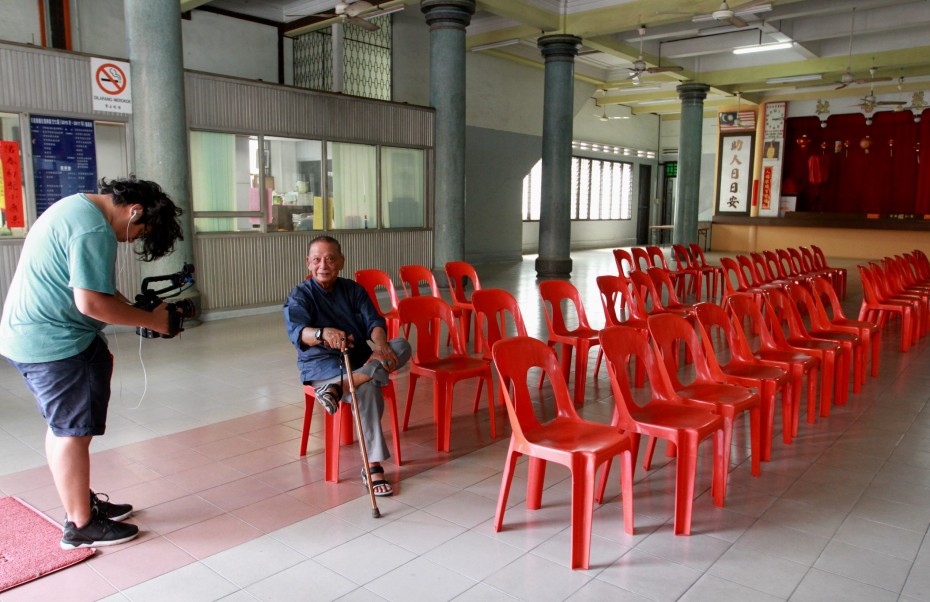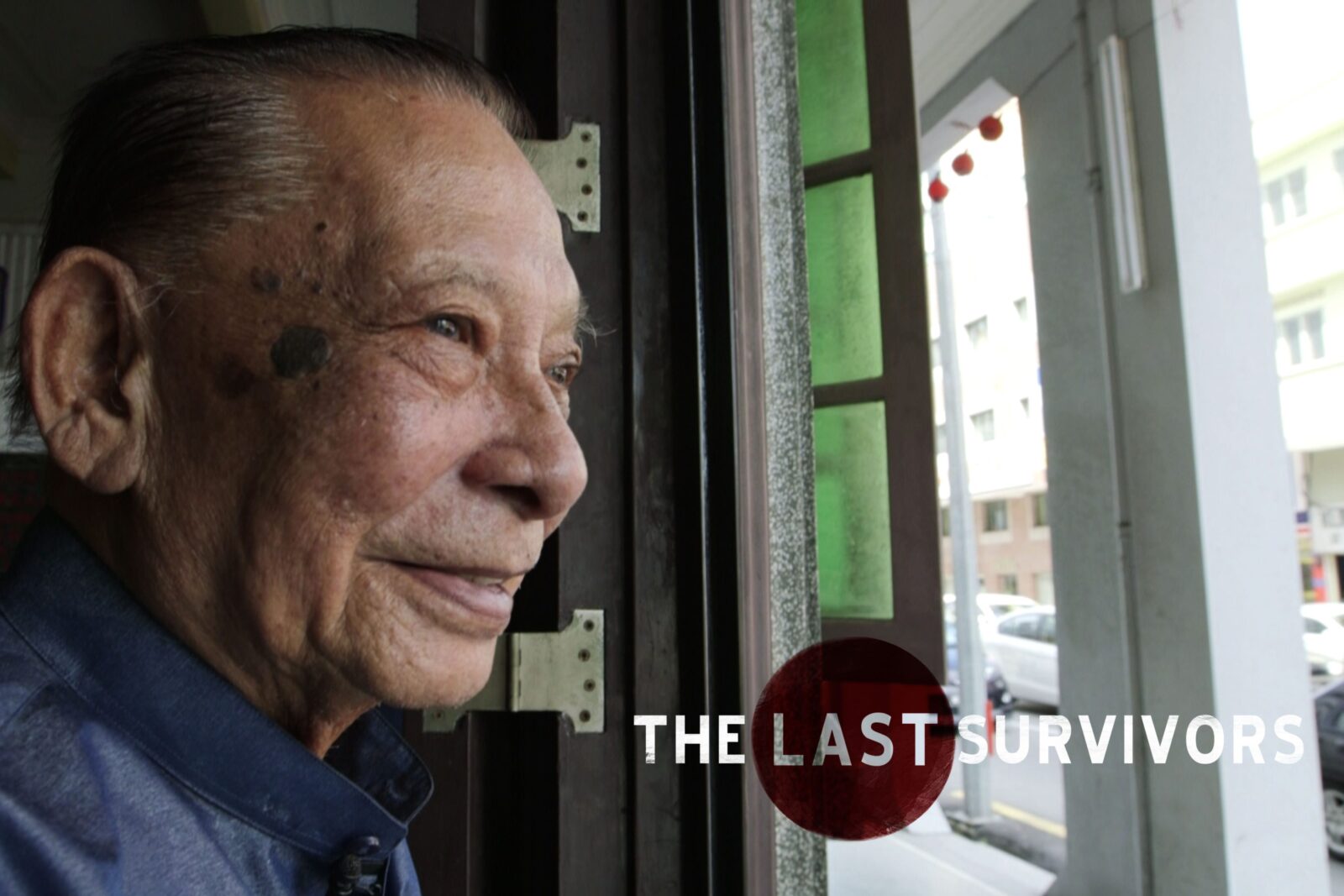WATCHING wildlife documentaries in his son’s house, Andrew Carvalho looked like any other elderly man enjoying his twilight years.
But his memories of the Japanese occupation of Malaya, and the hardships his family faced during those dark days, have been seared into his memory.
“We went to sleep hungry many times,” said the former civil servant. “I had to shoot birds with my catapult for food. Today, if you give me anything that crawls, I will eat it. The Japanese time taught me to do so.”
Carvalho was about 12 or 13 when the Japanese arrived in Malacca.
Anticipating their arrival, his father evacuated the family to a rubber estate called Kundang, deep in the jungles of Johor.
“He was hoping the jungles would be safer,” he said.

Andrew Carvalho at a school hostel in Malacca, which was a Japanese-controlled paper mill. He worked at there during WWII, making paper that would be used to print banana money and Japanese propaganda.
Unfortunately, it wasn’t. The Japanese were determined to eradicate all white people, therefore “freeing” Malaya from colonial powers.
They soon reached the estate, where the Carvalho family had sought refuge in the European estate manager’s bungalow with other refugee families.
“We were huddled in the hall when they burst in,” he recalled. “The officer unsheathed his sword and wanted to behead an Eurasian boy about my age.”
His father’s quick thinking saved the boy, when he opened his purse and pulled out a picture of Emperor Hirohito, who was revered by the Japanese.
“The officer shouted, and gave a great bow,” he said. “They then returned half the food they had stolen from us, and wrote a note on white paper to say we were poor Japanese.”
That was just the first of many harrowing incidents for the family during the occupation.
Another narrow escape happened when Carvalho’s mother saved the young girls living in the estate.
“An officer had been informed that our estate had eight or nine young girls,” he said. The Japanese were known to take girls as “comfort women”.
“My mother covered the girls’ bodies in charcoal, so they looked like they were covered in sores.”
Luckily, the Japanese were repulsed, and left.
Three or four months later, the family fled back to Malacca, siphoning petrol from the Japanese cars left in the estate.
“It was so frightening, siphoning petrol at 2am. If the Japanese knew it they would have shot us dead, but we managed to get enough to return to Malacca,” said Carvalho.
When they returned, their house had been looted and the Japanese were searching for communists.
Food was hard to come by. Tapioca and sweet potatoes became their staple diet, with rice becoming a luxury.
It was this lack of food that motivated him to leave St. Francis Institution, his school, and work in a paper mill along with two of his older brothers.
They were paid only in tapioca, sweet potatoes, cigarettes and around two kilograms of rice.
“It was more like play than work,” he said with a smile. “I would also steal some tapioca and sweet potatoes.”
The paper printed in the paper mill was used to print propaganda, and make “banana money”. That was what locals to call the Japanese currency, because the ten dollar note had a picture of a banana tree.
The paper mill is now a school hostel. There’s hardly a trace of its WWII history.

Carvalho at the Meng Seng building, a charity hall turned into a torture chamber by the Japanese. Carvalho said his uncle was tortured here, simply for listening to the radio. He said it was a “house of hell”.
But the building that holds the darkest memories for Carvalho is the Meng Seng building, a charity hall converted into a torture chamber.
Carvalho’s uncle was tortured there for listening to the radio, which was outlawed by the Japanese. He was only released when the war ended in late 1945.
After the war, the Japanese became prisoners of war, and were held at the Malacca High School building, which still stands today.
Carvalho was there when the Japanese were marched into the school to await deportation.
“The people pelted them with stones,” he recalled. “One Christian brother was shouting ‘kill them!’ because his father was killed by the Japanese.”
But the worst of the vitriol was reserved for the locals who worked as informants for the Japanese.
Carvalho said they were tied in pig baskets and hacked to death on the school field.
On Feb 22, 1946, a final signing ceremony took place in Kuala Lumpur, confirming the Japanese surrender.
Seventy years on, Carvalho hopes the lessons of the war will never be forgotten. “The word ‘war’ is a terrible word,” he said. “The result of war is always painful, and hurtful.”


Leave a reply